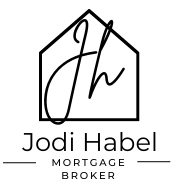Buying a house or apartment upfront in cash is not an accessible way to secure a property for a lot of people — if not the majority. That’s where mortgages come to the rescue to help connect people with their dream home. Mortgages are a type of home purchase loan that allows you to only pay a down payment upfront and the lender pays for the remaining amount, to whom you repay in installments over a set period of time. You can lend the money from a federal bank, credit union, or even a private mortgage from a relative. Let’s look at everything you need to know about home mortgages.
What is a Home Purchase Mortgage?
You may be wondering why it’s called a home mortgage and not just a mortgage? You can be offered or qualify for a different mortgage depending on the type of property you want to purchase. Typically, the criteria for residential/home mortgages differ from commercial property mortgages. There isn’t just one type of mortgage that you can apply to, though. Sitting down with a mortgage broker can be a helpful task to understand which type of mortgage better suits your credit score, budget, and overall financial standing. A few of the most common types of home mortgages. It’s important to look into each one of these mortgage types separately since they all vary in criteria: how high your credit score needs to be to qualify, how much financing they will provide, and so on. You will typically need to pass a mortgage stress test before receiving pre-approval which means your current financial standing and assets will be assessed to determine how well you will be able to react to changing interest rates and other hurdles throughout your payment period.
How Home Purchase Mortgages Work
There’s a lot to consider when getting a home mortgage, starting from the amortization period to closing costs. How your mortgage journey goes is dependent on the terms you agree on in the beginning. That includes various elements such as your payment schedule (will you pay in monthly or biweekly installments?), what your interest rate is, whether you have a fixed or adjustable mortgage, and how long your amortization period is. Additionally, the property is placed as collateral as insurance for your lender in case you are not able to continue with payments some time down the line.
Which Home Purchase Loan is Right For You?
Many homebuyers choose a loan depending on which lenders will provide them with financing since potential homebuyers with low credit scores have more limited offers. Other considerations borrowers have are the interest rate and additional costs associated with the mortgage such as closing fees and insurance. It’s all a matter of securing a home mortgage that is in sync with your financial standing and needs at the same time.
A few other questions I get asked often are:
- Can you use a reverse mortgage to purchase a home?
Yes, it’s possible for homeowners over the age of 55 to qualify for a reverse mortgage, and access a portion of their home equity to put it towards a new home.
- How can you purchase a new home with an existing mortgage?
There are many options for this starting from renting out one property that won’t be in use to consolidating your mortgage. The latter refers to merging your two home mortgages into one payment.
Why Work With a Mortgage Broker for Home Mortgages
Why not go to your local bank with the papers in your hands and ask for a mortgage? You are less likely to get beneficial offers or even qualify for the high standards set by banks on your own. A mortgage broker has access to a large network of local lenders and credit unions which is why they are able to connect you with better home purchase mortgage rates than you’ll find on your own.
Contact me, Jodi Habel, for help to acquire financing. I provide complete mortgage services in Canada smoother than you can imagine. After all, it may be your first time getting a mortgage, but I have acquired relationships with major banks, credit unions, monoline, and alternative lenders through my 15 years of experience working in the industry.

